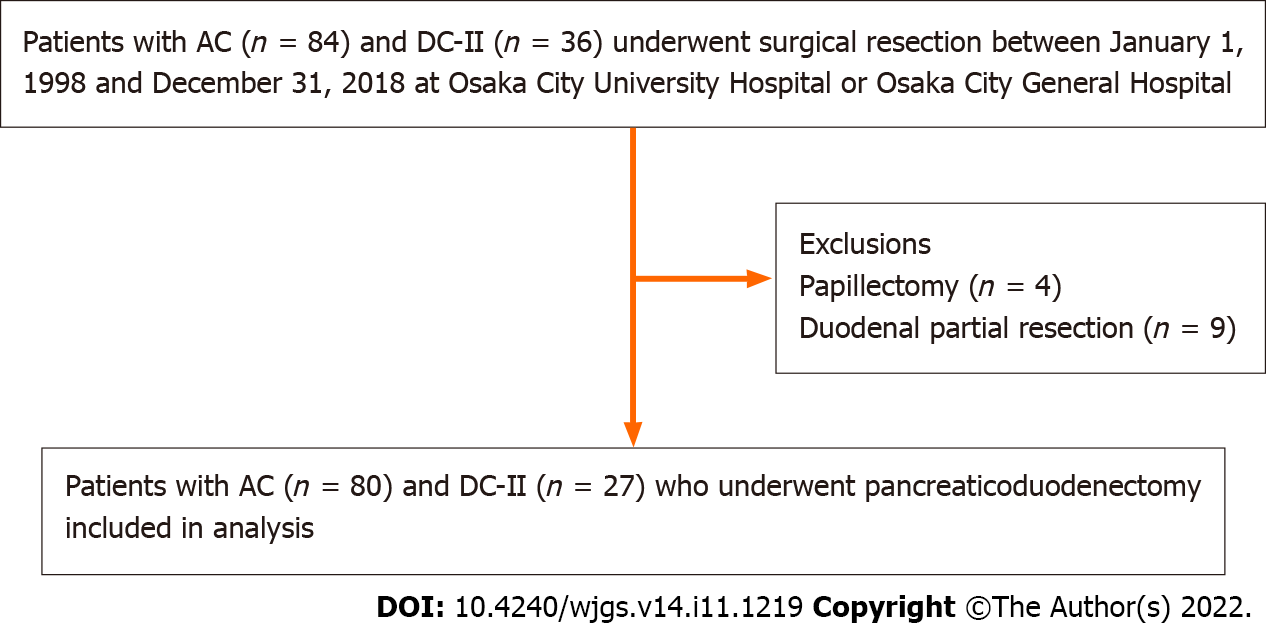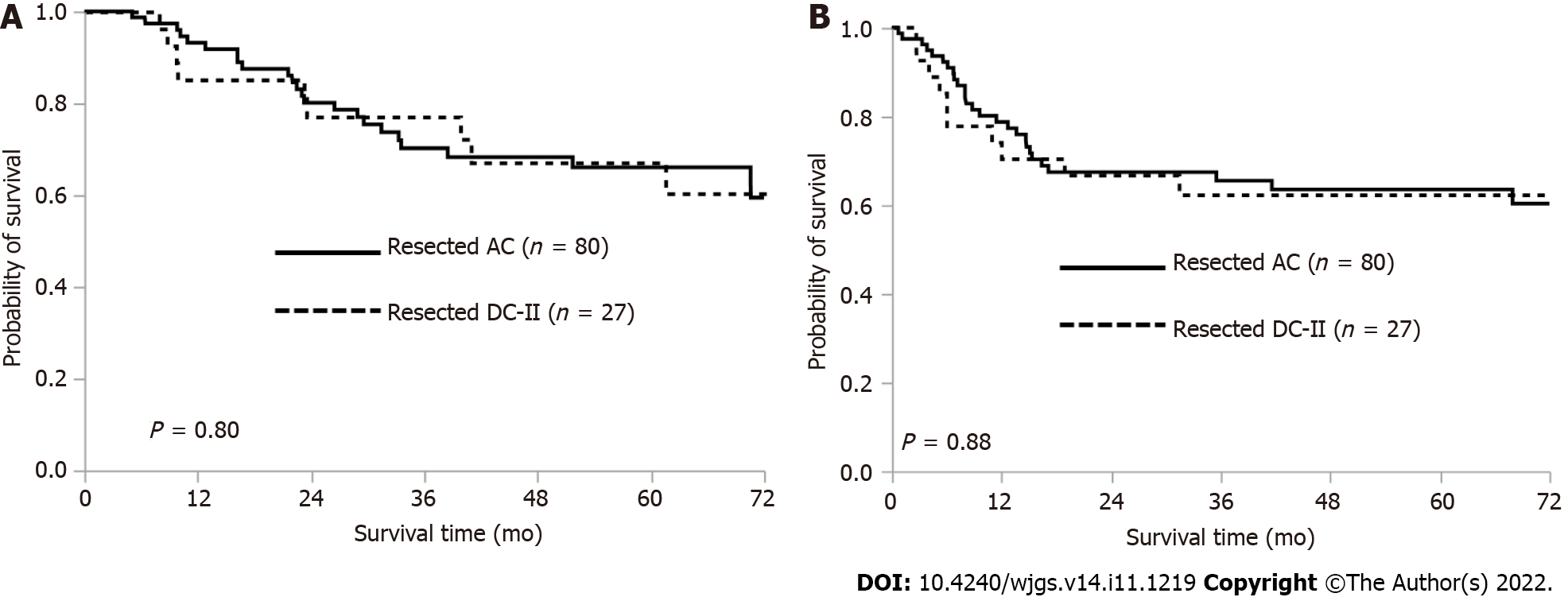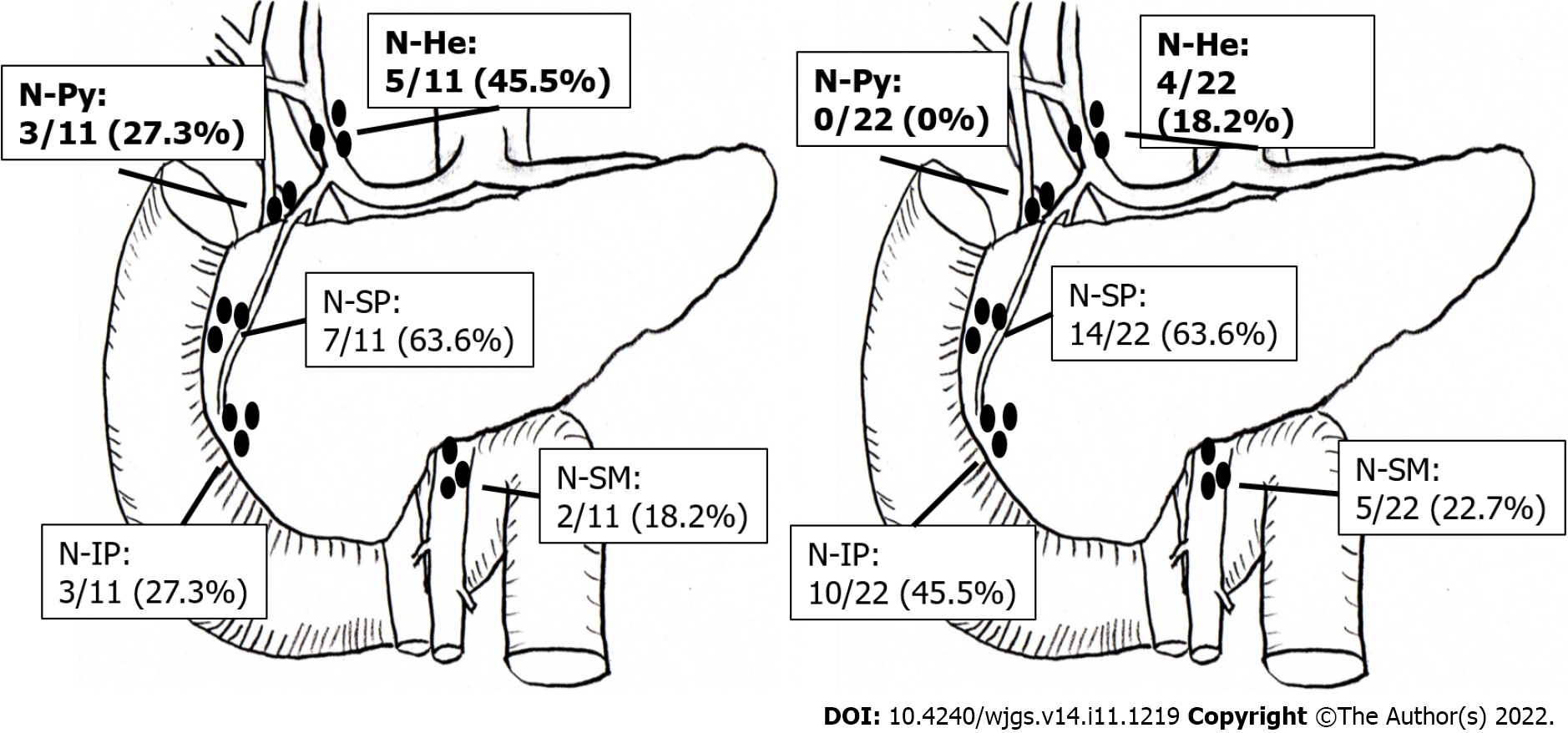Copyright
©The Author(s) 2022.
World J Gastrointest Surg. Nov 27, 2022; 14(11): 1219-1229
Published online Nov 27, 2022. doi: 10.4240/wjgs.v14.i11.1219
Published online Nov 27, 2022. doi: 10.4240/wjgs.v14.i11.1219
Figure 1 Patient flowchart.
AC: Ampullary carcinoma; DC-II: Cancer of the second portion of the duodenum.
Figure 2 Survival curves of patients with cancer of the second portion of the duodenum (n = 27) and ampullary carcinoma (n = 80).
A: Overall survival of patients with cancer of the second portion of the duodenum (DC-II) and ampullary cancer (AC); B: Relapse-free survival of patients with DC-II and AC.
Figure 3 The distribution of lymph node metastasis in patients with cancer of the second portion of the duodenum (n = 11) and ampullary carcinoma (n = 22).
A: Metastasis to specific lymph nodes in 11 patients with DC-II; B: Metastasis to specific lymph nodes in 22 patients with AC. N-He: Hepatic lymph nodes; N-IP: Inferior pancreaticoduodenal nodes: N-Py: Pyloric lymph nodes; N-SM: Mesenteric nodes; N-SP: Superior pancreaticoduodenal nodes
- Citation: Nishio K, Kimura K, Murata A, Ohira G, Shinkawa H, Kodai S, Amano R, Tanaka S, Shimizu S, Takemura S, Kanazawa A, Kubo S, Ishizawa T. Comparison of clinicopathological characteristics between resected ampullary carcinoma and carcinoma of the second portion of the duodenum. World J Gastrointest Surg 2022; 14(11): 1219-1229
- URL: https://www.wjgnet.com/1948-9366/full/v14/i11/1219.htm
- DOI: https://dx.doi.org/10.4240/wjgs.v14.i11.1219











